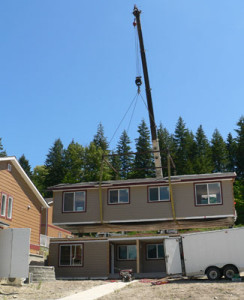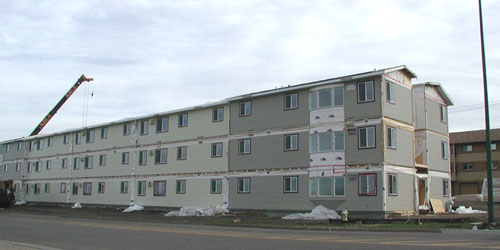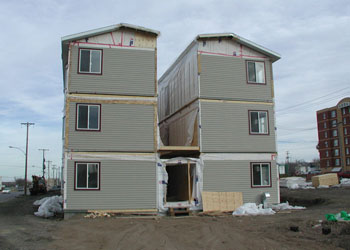Modular Construction Defined:
Many builders have a misconception that “modular” refers to a type or style of housing. Modular actually refers to a construction technique that can greatly enhance your efficiency and reduce your risk. With it, you can complete more units and ultimately increase your profitability.
Modular Construction has many Advantages
- Quality control
- Construction speed
- Energy efficient structures
- Stronger, more durable structures
- Less waste
- Neighborhood friendly
- Reduced construction traffic and noise …plus many more…
The modular concept is not new. For many years, builders have been improving the construction process by purchasing factory-assembled components such as pre-hung doors and windows, cabinet modules and roof trusses. These components allow builders to build faster and better. Modern modular construction is simply a natural extension of this process, in which larger components are pre-built in a manufacturing facility with the same materials used on-site and adhering to the same construction codes.
In a manufacturing facility, modular manufacturers have access to tools, jigs, tables and material handling equipment which are not viable on a field construction site. These tools and equipment allow us to fabricate a stronger and more durable structure while controlling our labor costs.
And, since all material is protected from the elements and the construction takes place in a climate-controlled environment, the modules are not subject to weather-related damage that can cause rework or costly product liability issues (e.g. mold).
The result? Completed components(modules) are transported to your site and assembled on your foundation, resulting in a structure that is approximately 80% complete.



